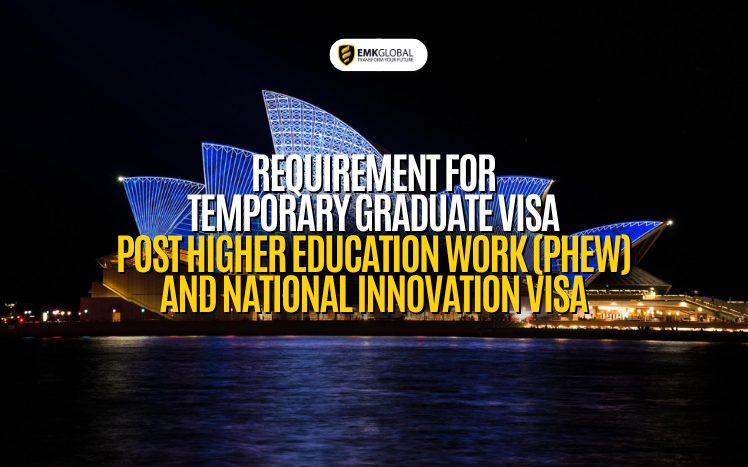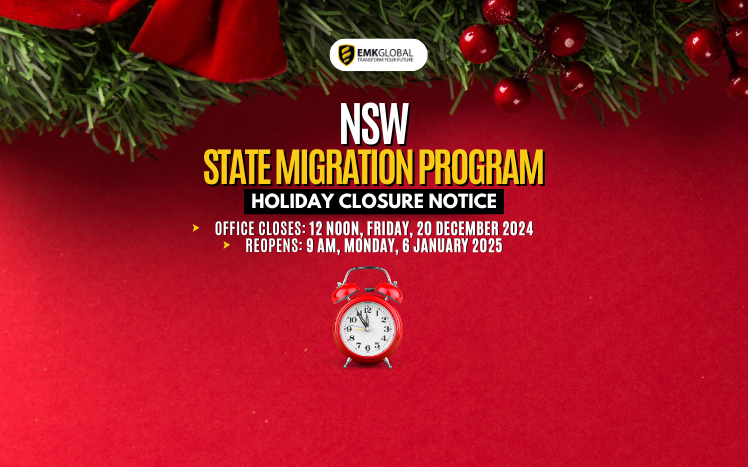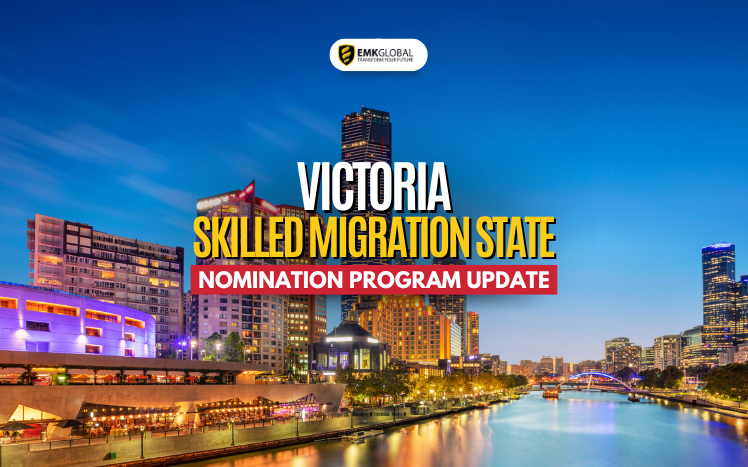Graduate visas Sc 485
Migration Amendment (Graduate Visas No. 2) Regulations 2024 – this instrument includes an express definition of ‘degree’, specifically for the purposes of the Sc 485 visa and ensures that the Sc 485 visa criteria operate as intended following the 1 July 2024 changes to the Sc 485 Post Higher Education Work (PHEW) stream.
Following this, it requires an applicant for an initial Subclass 485 visa in PHEW stream, in the period six (6) months immediately before the application for that visa was made, to have completed one or more degrees for award by an Australian educational institutions as a result of a course or courses:
- that are registered courses; and
- that were completed in a total of at least 16 calendar months; and
- that were completed as a result of a total of at least two (2) academic years study; and
- for which all instruction was conducted in English; and
- that the applicant undertook while in Australia as the holder of a visa authorising the applicant to study
This instrument commences on 14 December 2024.
Ministerial Direction 112 – National Innovation Visa Sc 858
As per section 8 of Ministerial Direction 112 (MD 112) the order of priority for allocating applications for the Sc 858 National innovation visa (NIV) are the following:
- Priority one- Exceptional candidates from any sector who are global experts and recipients of international ‘top of field’ level awards. This includes but are not limited to Nobel Prizes; Breakthrough Prizes; Rousseeuw Prize; Eni Award; Institution of Electrical Engineers Medal of Honor; Fields Medal; Chern Medal; Abel Prize; L’Oreal-UNESCO Award for Women in Science; Turing Award; ACM Prize in Computing; Pulitzer Prize; International Booker Prize; International Tchaikovsky Competition Gold Medal; Olympic Gold Medal and Laureus World Sportsman or Sportswoman of the year.
- Priority two- Candidates from any sector nominated on the approved Form 1000 by an expert Australian Commonwealth, State or Territory Government agency.
- Priority three- Candidates with exceptional and outstanding achievementsin a Tier One sector:
- Critical Technologies
- Health Industries
- Renewables and low emission technologies
- Priority four – Candidates with exceptional and outstanding achievements in a Tier Two sector:
- Agri-food and AgTech
- Defence Capabilities and Space
- Education
- Financial Services and FinTech
- Infrastructure and Transport
- Resources
s 9 of MD 112 specifies that decision makers should have regard to a demonstration of multiple achievements, which may include but are not limited to:
- receipt of a national research grant in Australia or overseas indicating that the individual is ‘top of their field’ level talent, including from:
- the Australian Research Council; Department of Education Accelerator grants; or other similar level grants;
- equivalent level grants from other countries, such as the United Kingdom research and Innovation Grants program; funding from the EU Commission; funding from the US National Science Foundation.
- holding a PhD with high-levels of academic influence or thought leadership in their field, including:
- recent publications in top ranked journals, such as Nature, Lancet or Acta Numerica
- a high h-index for their stage of career, for example an early career researcher with an h-index of 14
- research-based degree from a top global university, for example ranked in top 100 World University Rankings by Times Higher Education
- recent keynote appearance at a high-profile international conference, for example Web Summit, International Congress of Mathematicians, American Association for Cancer Research (AACR) Annual Meeting or International Geoscience and Remote Sensing Symposium.
- having recognised intellectual property attributed to them, such as holding relevant international patents.
- earning at or above the high income threshold (employment offer or current salary) where
- there is written communication from an Australian employer offering employment in Australia with an annual salary equivalent to or higher than the high income threshold; or
- the primary applicant’s current earnings is an amount equal or greater than the high income threshold
In considering exceptional and outstanding achievements for applications under Priority 2 which are for candidates from any sector nominated on the approved Form 1000 by an expert Australian Commonwealth, State or Territory Government agency, decision makers should have regard to a broader range of achievements, which may include but are not limited to:
- achievements listed in subsection 9(3) ( all of the above);
- top of field level sports and arts awards
- evidence of innovative business activities, such as Significant ‘Angel’ Investors with established track record of supporting successful innovative ventures, or having led internationally reputed companies to their Initial Public Offering;
- evidence of promising entrepreneurial activities that will lead to the commercialisation of a product or service in Australia or the development of a business or enterprise in Australia, particularly where linked to State or Territory based start-up incubators;
- actions by individuals that provide exceptional service to the Australian community, including outstanding work in establishing organisations that improve community cohesion or wellbeing of Australians;
- other exceptional achievements in the context of the supporting agency’s strategic priorities.
Source: MIA Notice 31 – Legislative Updates














